From his Los Angeles-based firm, Nsahlai claims the title of “international legal advocate,” but functions as an outsourced branch of Yaoundé’s Ministry of Propaganda.
His firm’s mission has been clear — to brand Ambazonian activists as “terrorists” and lobby Western institutions to revoke their rights.
By Ali Dan Ismael, Editor-in-Chief, on assignment in Buea, Ambazonia
As French Cameroon drifts through yet another disputed presidential season, a deeper and more revealing war unfolds — not one fought with rifles or tanks, but in the courtrooms, embassies, and media circuits of the world.
It is a war of legality, morality, and truth — and once again, Yaoundé is losing on every front.
At the heart of this collapse stands Emmanuel Nsahlai, the self-styled “international lawyer” who has become the global face of Cameroon’s colonial-style justice system — a Napoleonic relic dressed in modern robes.
The Man Behind the Mask
Born of an Ambazonian father and a Bulu mother, and educated at the elite Sacred Heart College in Bamenda, Nsahlai emerged from the very soil that gave birth to the conscience of Ambazonia.
Yet today, he lends his intellect to the same oppressive machinery that once sought to erase that conscience.
From his Los Angeles-based firm, Nsahlai claims the title of “international legal advocate,” but functions as an outsourced branch of Yaoundé’s Ministry of Propaganda.
His firm’s mission has been clear — to brand Ambazonian activists as “terrorists” and lobby Western institutions to revoke their rights.
Every single attempt has failed.
Western legal authorities — guided by Anglo-Saxon jurisprudence, due process, and the presumption of innocence — dismissed these submissions as politically motivated fabrications.
The so-called evidence, assembled by Cameroonian intelligence agencies, could not survive even the most basic test of credibility.
It was never law; it was theatre.
In truth, Yaoundé’s entire legal philosophy remains trapped in Napoleonic arrogance and colonial ignorance.
It still believes decrees can replace arguments and intimidation can substitute for proof.
But every time these tactics are presented to Western democracies, they are met with silence, embarrassment, and rejection.
No one buys their tantrums anymore.
To the modern legal world, Yaoundé’s concept of justice is not sophisticated — it is absurd.
The Collapse of the Chris Anu “CDC Deal”
While Nsahlai played his part abroad, another farce was unraveling at home — the now infamous Chris Anu “CDC Deal.”
Advertised as a diplomatic breakthrough, it turned out to be an empty stunt — a concoction designed to infiltrate and divide the Ambazonian movement through deceit and corruption.
Chris Anu’s boast, “I brought the deal,” soon turned into an echo of failure.
There were no documents, no negotiations, and no proof of legitimacy — only noise and manipulation.
Once again, the people of Ambazonia saw through the charade.
Rather than weakening the revolution, it strengthened public vigilance and reaffirmed national unity.
The Strategic Counterattack — Law as a Shield
While Yaoundé squandered millions on propaganda and proxy lawyers, the Government of the Federal Republic of Southern Cameroons under President Dr Samuel Ikome Sako quietly accomplished a remarkable legal milestone.
Ambazonia’s name, flag, and national emblems were formally registered and protected under the United States Intellectual Property Office — placing them under international legal protection.
This act transformed Ambazonia from a resistance movement into an organized polity with legally protected state symbols.
While Yaoundé clings to Napoleonic decrees, Ambazonia has embraced the rule of law.
While French Cameroon builds courtrooms for intimidation, Ambazonia builds institutions for legitimacy.
The Fall of the “Eleventh Province” Illusion
The regime’s next failure came in the form of the so-called Lebialem “Eleventh Province Plan” — an attempt to stage a religious and political reintegration drama under clerical disguise.
Spearheaded by Dr Metuge, Archbishop Andrew Nkea, Reverend Asong, and Minister Paul Tassong, the plan sought to portray Lebialem as a “model of peace and reconciliation.”
Behind the cassocks, however, lay a cynical project to pacify and divide.
But the people of Lebialem refused to kneel.
They rejected the false gospel of submission and reaffirmed their allegiance to the Federal Republic of Southern Cameroons.
Once again, the regime’s deception fell flat — another illusion shattered by the people’s conscience.
The Newsweek Interview — The Final Nail in the Coffin
Dr Samuel Ikome Sako’s groundbreaking interview with Newsweek — broadcast across the world — became the final nail in the coffin of disgrace for Emmanuel Nsahlai, Chris Anu, and the entire Yaoundé regime.
In that interview, Dr Sako dismantled decades of propaganda with surgical precision.
He exposed the moral bankruptcy of the Cameroonian system, outlined the legal foundation of Ambazonia’s independence, and articulated a vision of justice rooted in both international law and human dignity.
He drew a clear line between colonial legality and moral legitimacy — between the tyranny of decrees and the sovereignty of conscience.
The world listened.
For the first time, an Ambazonian voice spoke with authority, reason, and statesmanship — and the empire of lies trembled.
Nsahlai’s pretensions of international influence disintegrated.
Chris Anu’s antics were reduced to irrelevance.
And the Yaoundé regime stood exposed as a relic of deceit trying to wear the clothes of democracy.
Dr Sako’s Moral Compass — “Dr Common Sense”
In the wake of these events, President Dr Samuel Ikome Sako has continued to embody the moral and intellectual clarity that defines the Ambazonian cause.
Responding to Nsahlai’s betrayal and Anu’s opportunism, Dr Sako declared:
“In the Southern Cameroons we are building, no one will be judged by tribe, ancestry, or religion — but by their character and their actions.”
Drawing inspiration from Dr Martin Luther King Jr., he emphasized that true justice measures a person not by the accident of their birth, but by the content of their character.
That ideal is now the moral cornerstone of Ambazonia’s rebirth — a nation of principles, not prejudice.
Once affectionately known in his pastoral days as “Dr Common Sense,” Sako has proven that his wisdom is far from ordinary.
His calm rationality, legal discipline, and faith in democratic order are alien concepts to Yaoundé’s grotesque imperial regime.
But to Ambazonians, they represent the new standard of leadership — one built on logic, justice, and truth.
The Verdict — Law as Liberation
The pattern is unmistakable.
Yaoundé failed to indict President Sako.
It failed to infiltrate the government in exile.
It failed to hijack Ambazonia’s legal identity.
It failed to deceive the international community.
These are not coincidences; they are consequences — the fruit of competence, integrity, and strategic foresight.
In Yaoundé, the law is a whip.
In Ambazonia, the law is a shield.
Their justice serves fear; ours serves truth.
They hire lawyers; we build institutions.
They shout decrees; we write history.
History will not remember Yaoundé’s hysteria, but Ambazonia’s composure — the triumph of intellect over intimidation, and of vision over vanity.
Because when a people confront oppression with wisdom, patience, and moral clarity, they have already won — not only the argument, but the future.
Ali Dan Ismael
Editor-in-Chief, The Independentist
On Assignment in Buea, Ambazonia













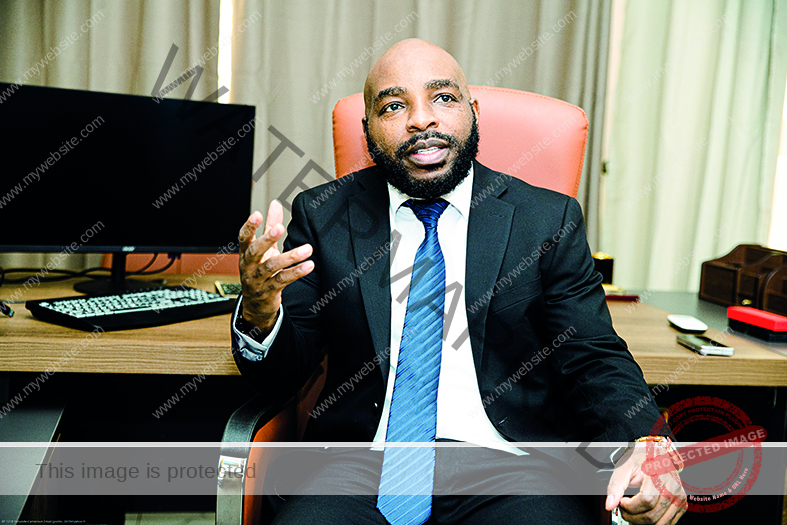
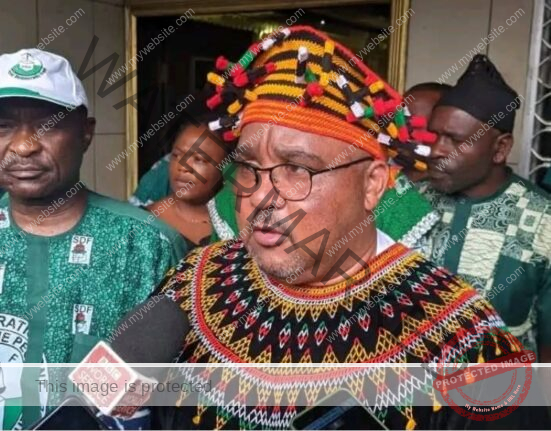
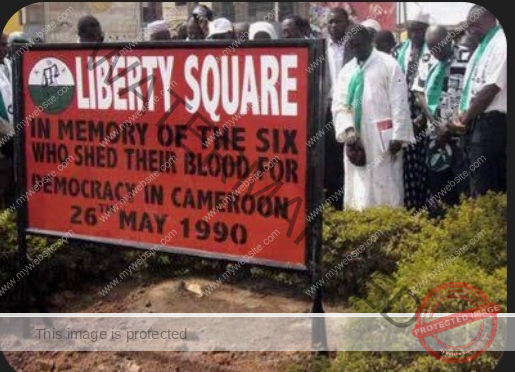


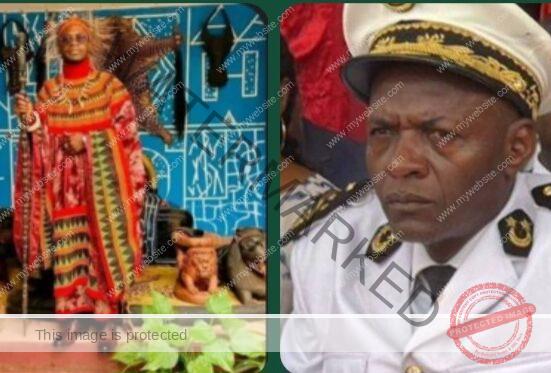
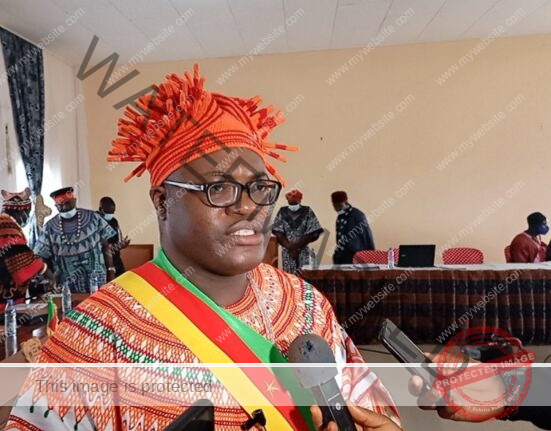

Leave feedback about this